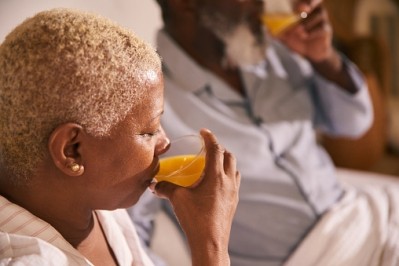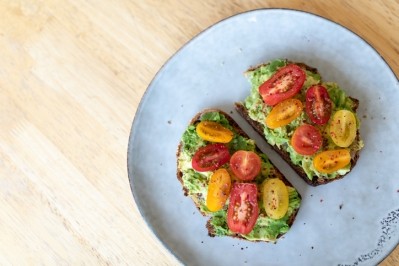IFT Annual Conference
Consumer interest in immunity has dropped from early pandemic days, but health claims remain a top priority for food and beverage shoppers, Innova Market Insights data shows

According to Google trends data, searches for “immune” within the food and drink category shot up from about 10-15 in the weeks before the pandemic was declared to 100 within weeks after the pronouncement before dropping back down to around 25 as the pandemic continued.
In response, product launches touting immune health rose 18% in the 12 months after the pandemic was declared compared to the 12 months before, according to data from Innova Database.
While the pandemic can be credited for much of this increase, consumer interest in immune health was already on the rise before the coronavirus outbreak, with Innova Market Insights tracking a 6% compound annual growth rate between 2016 and 2018.
As the perceived threat of the coronavirus ebbs for many Americans, the big question now is: Does immunity have sticking power, which Lu Ann Williams, director of innovation at Innova Market Insights, says she is asked at least once a week.
Speaking at IFT’s virtual conference yesterday, Williams indicated several factors support the staying power of consumer interest in immune-boosting foods and beverages, even if not at as high a rate as during the first part of the pandemic.
First, she said, a growing body of research and evolving regulations support immune health claims. For example, she pointed to the regulatory approval in Brazil for the commercialization of two probiotic strains (LC40 and K8), both of which are claimed to boost the immune system. Likewise, in March, NutriLeads conducted a study that found immune supporting benefits of upcycled carrot-derived polysaccharides.
Williams also noted the increase variety and accessibility of products with immunity benefits will help keep the claim and benefit front of mind for consumers.
“If you start to look around, you see immune health things everywhere,” including packaged rice from enerBio in German, Jaffa juice in the Ukraine, chewables in the Netherlands and spreads in Spain, she said.
Finally, she noted, almost a third of people say they will continue to consumer food and beverage that improves their physical health, and about 20% say that they will continue to take supplements and remedies for immunity.
Expanding definition of health
Even as consumers’ intent focus on immunity claims falls slightly, their interest in products that support their health and wellness more broadly is rising and expanding, Williams said.
“We seen the definition of health become a lot more holistic,” with 55% of consumers globally reporting they have taken action to support their physical wellbeing, 44% their mental and emotional wellbeing and 32% their spiritual time, Williams said citing data from Innova’s Lifestyle & Attitudes survey.
Innova research also found that the top three types of products that consumers are interested in for mental and emotional functions are products supporting brain health, mental stimulation and happiness.
For example, Williams said, Innova Lifestyle & Attitudes survey revealed that 23% of respondents consumed food or beverages that actively improved their mood or mental wellbeing – an early indicator that mood is the next functional health occasion to watch.
“We also see things like sleep and relaxation,” Williams added.
These interests “instantly opens up the opportunity for things like adaptogens and for CBD,” Williams noted.
The wide variety of needs and rising consumer interest also open the door for more personalized nutrition, which Williams says 64% of consumers reporting finding ways to tailor products they buy to their individual style, belief and needs.
Finally, Williams says she sees significant potential for products catering to healthy aging going forward with a ‘staggering’ 87% of consumers 56 and older reporting that it is important to them to take control of their own health.
Ultimately, Williams said, while immunity has staying power at a much lower level than during the peak of the pandemic, there are plenty of other health benefits on the rise around which brands can innovate and grow.










